PEER GROUP MEET- NOVEMBER 2023
The monthly meeting of the “Friends Forever” peer support group for type 1 diabetes took place at the MDRF auditorium on November 4, 2023, at 11 a.m. Over 100 participants, including children with type 1 diabetes, their parents and staff attended the event. Dr. V Mohan, our chairman, graced the occasion and provided insights into the discovery of insulin on the occasion of World Diabetes Awareness Month. He also explained why November 14th is celebrated as World Diabetes Day, this being the birth date of a legend, the one who discovered the magic potion for the survival of people with Type 1 Diabetes: ‘INSULIN’.
In 1920, Frederick Banting, a struggling orthopedic surgeon, discovered insulin. Banting was not an academically proficient student; however, during World War I, the shortage of doctors to serve at the frontforced the government to pass failed medical students, allowing them to serve the country – Dr Banting was one among them. He, who was passionate about his job, treated wounded patients, even after sustaining a gunshot. He later shifted to Toronto, Canada where he found it difficult to build up a practice. Frustrated and in need of money, he took up a job teaching physiology to medical students at a university. During this time, he was required to take a class on the pancreas, setting him thinking about this otherwise obscure organ.
Dr. Mohan said “people are born with a purpose, and Dr. Banting’s life was meant to invent insulin”.
In 1921, Dr. Banting had a dream in which he thought of the pancreas’s connection to diabetes and the way in which the pancreatic secretion could be used to treat diabetes, which at the time was considered a death sentence for patients. Excited, he approached the renowned scientist Dr. Macleod for help. After many requests, Dr. Macleod agreed to Banting’s conducting research under the condition that all experiments should conclude before his (Macleod’s) return from his vacation. Dr. Banting collaborated with Dr. Charles Best, a medical student, and conducted experiments on stray dogs. Despite many challenges and setbacks, they discovered a pancreatic juice that, when injected into a dog with diabetes, kept it alive for more than 2 months. James Collip, a biochemist helped them in purifying the product, leading to the development of insulin.
The first person to be administered insulin was a teenager with type 1 diabetes named Leonard Thompson on January 11, 1922. After the success of this trial, the demand for insulin surged, and pharmaceutical companies flocked to Toronto to obtain the rights to produce insulin. Believing that “insulin belongs to mankind”, Banting and colleagues refused all financial inducements and in 1923, they donated the patent for insulin to the University of Toronto for the token sum of ‘one dollar’. In the same year, the Nobel Prize was awarded to Dr. Banting and Dr. Macleod.
Banting, however, believed that Macleod did not deserve the prize and decided to split his share of trhe prize with Charles Best, whereupon Macleod declared that he would split his share with James Collip.
The remainder of Dr. Banting’s academic life was somewhat of an anticlimax. He tried different experiments in his later life including in the field of cancer, but he failed in all. He fared better in his hobby of painting and was listed among the top 10 artists of Canada. Unfortunately, he passed away in a plane crash in 1941 at the early age of 49.
Insulin came to India within one year of its clinical debut in the west. Dr J.P Bose from Kolkata was one of the pioneers of insulin use in India. The first Indian to receive insulin injections was 11-year-old Kumidhini. In those days, insulin had to be imported from the UK, which led to fears that there would be a disruption in supply during World War II,. However, due to the efforts of Dr.Boseand others, such a situation did not come to pass and the lives of Indian children with type 1 diabetes were saved.
In conclusion, Dr. Mohan shared inspiring storiesof people with type 1 diabetes, highlighting Mr. Sawane from Nagpur as a long-living individual with type 1 diabetes and Gary Hall, an Olympic Gold medallist in swimming, Wasim Akram, Pakistan Cricket Player who got diagnosed with Type 1 diabetes during peak of his career, and Mr. Lakshmi Narayan, born blind and later developed T1D and yet taking life positively and inspiring people by running marathon.Dr. Mohan expressed confidence that India and the world might a find a prevention and cure for type 1 diabetes due to advanced technologies. But he also said, for the time being “Insulin is the only medicine”.
Maintaining good control of diabetes makes life easier, and nothing is impossible for a person with type 1 diabetes. Following Dr. Mohan’s motivating story and speech, extracurricular activities such as dance, poetry, and Taekwondo were organised for the children. Some of the children also composed paintings of Dr. Mohan and gifted them to him. Dr. Mohan’s book, “Banting, Bose, and Beyond,” was distributed as a gift to participants. The program concluded with a group picture with the chairman and lunch.
- Dr V. Mohan explaining ‘The Miracle of Insulin discovery’
- Dr. Mohan signing his book ‘Banting, Bose and Beyond’ and gifting it to the children
- Master Rajsekhar gifted a portrait and a bamboo house miniature to Dr. V. Mohan
- Miss Sandhya, A national Taekwondo Champion, showcasing her talent.
- Ms. Gowshika, gracefully presented her talent through bharathanatyam.
- Ms. Punithavathi renders her poem addressed to Dr V Mohan
- Master Hariraj dancing to the Oscar winning ‘NaatuNaatu’ Song
- Master Aswith Aron with his Silambam
- Miss Aarthi, confidently rendering Thirukkural
- The group picture with the Dr. V. Mohan.

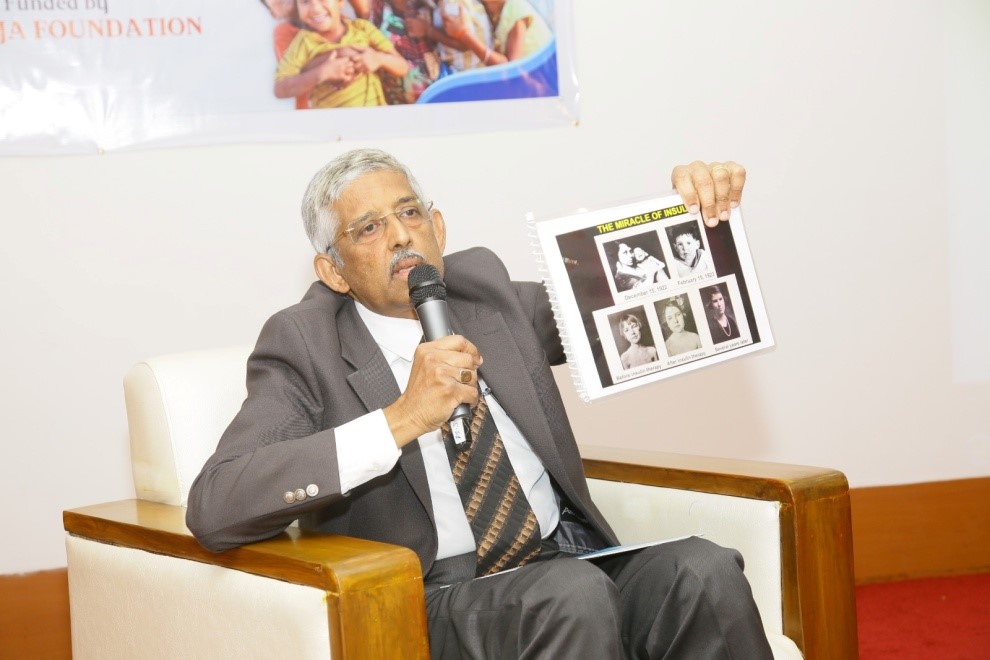









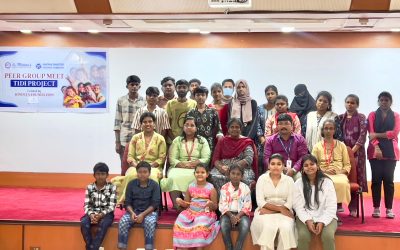

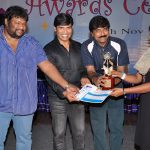
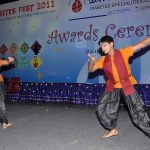
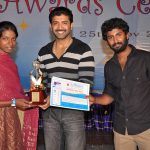
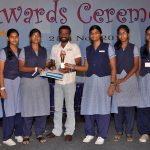
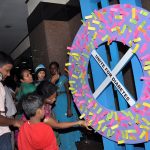
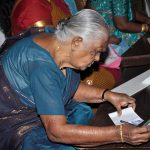
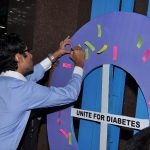
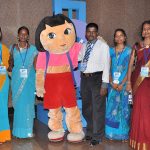
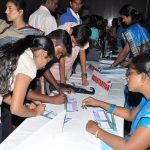
0 Comments